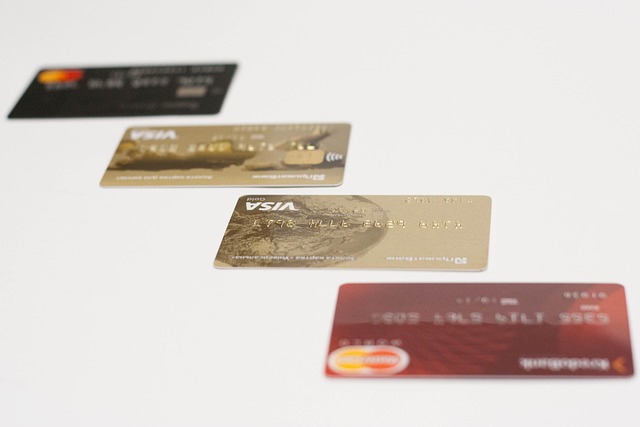Unlock Affordable Vehicle Deals: Explore Police Impound Cars for Sale – Your Ultimate Guide to Auctions and Resources
Police impound car auctions present a unique opportunity for buyers seeking affordable vehicles. These auctions feature cars, trucks, motorcycles, and other vehicles seized by law enforcement agencies due to unpaid parking tickets, abandoned property, criminal investigations, or traffic violations. Understanding how these auctions work, what vehicles are available, and how to navigate the purchasing process can help you secure a quality vehicle at a fraction of retail cost while avoiding common pitfalls.

When law enforcement agencies seize or impound vehicles, they eventually need to liquidate them to recover storage costs and make room for new inventory. This creates an opportunity for savvy buyers to purchase vehicles at significantly reduced prices. Police impound auctions occur regularly across the country, offering everything from economy cars to luxury vehicles, often with starting bids well below market value. However, success at these auctions requires preparation, research, and understanding of the unique purchasing process involved.
Understanding Police Auctions
Police impound auctions are public sales where law enforcement agencies sell vehicles that have been seized, abandoned, or forfeited. These auctions can be conducted in person at designated locations or increasingly through online platforms. Vehicles end up at impound auctions for various reasons: owners failed to pay fines or reclaim their vehicles within the legal timeframe, cars were used in criminal activities and forfeited to the state, or vehicles were abandoned on public or private property. Most jurisdictions are required by law to hold these auctions publicly, giving all interested buyers equal access. Auctions typically occur monthly or quarterly, depending on the agency and volume of impounded vehicles. Before attending, potential buyers should research upcoming auction dates, preview schedules, and registration requirements, which vary by jurisdiction.
Types of Vehicles Available
The variety of vehicles at police impound auctions can surprise first-time attendees. Passenger cars represent the largest category, ranging from compact sedans to full-size SUVs, spanning various makes, models, and years. Motorcycles and scooters frequently appear, particularly in urban areas where two-wheeled transportation is popular. Commercial vehicles including vans, pickup trucks, and work vehicles are common, appealing to contractors and small business owners. Occasionally, luxury and exotic vehicles seized in criminal investigations make appearances, though these typically attract competitive bidding. Recreational vehicles, boats, trailers, and ATVs also surface depending on the region and types of cases local law enforcement handles. Vehicle conditions vary dramatically, from well-maintained cars to those requiring significant repairs, making thorough inspection during preview periods essential.
How to Purchase Impounded Cars
Successfully purchasing a vehicle at a police impound auction requires strategic preparation. Start by locating auctions through government websites, public notices, or specialized auction listing services that aggregate upcoming sales. Register in advance, as most auctions require pre-registration with valid identification and sometimes a refundable deposit. Attend preview days to physically inspect vehicles, checking for mechanical issues, body damage, missing parts, and overall condition. Bring a knowledgeable mechanic if possible, as vehicles are typically sold as-is without warranties. Research vehicle values using online pricing guides to establish maximum bid amounts, factoring in potential repair costs. On auction day, arrive early to observe bidding patterns and set firm budget limits to avoid emotional overspending. Payment terms vary but often require cash, cashier’s check, or certified funds on the same day or within 24-48 hours. Winning bidders must arrange vehicle pickup within specified timeframes and handle title transfer through appropriate motor vehicle departments.
Resources for Buyers
Numerous resources help buyers navigate the police impound auction landscape effectively. Government websites for city, county, and state law enforcement agencies post auction schedules, vehicle inventories, and bidding procedures. Online auction platforms have expanded access, allowing buyers to participate remotely through sites that specialize in government surplus and seized property. Third-party auction aggregators compile listings from multiple jurisdictions into searchable databases, saving research time. Vehicle history report services provide crucial information about past accidents, title status, and ownership records using VIN numbers. Local automotive forums and buyer communities share experiences, tips, and warnings about specific auction houses or common issues. Legal aid organizations and consumer protection agencies offer guidance on buyer rights and recourse if problems arise post-purchase.
| Resource Type | Provider Examples | Key Features |
|---|---|---|
| Government Auction Sites | PropertyRoom.com, GovDeals.com, Public Surplus | Direct access to official government auctions, verified listings, buyer protection policies |
| Vehicle History Services | Carfax, AutoCheck, VINCheck.info | Accident history, title status, odometer readings, previous ownership records |
| Auction Aggregators | AuctionZip.com, BidSpotter.com | Multi-jurisdiction search, email alerts, calendar functions, user reviews |
| Valuation Tools | Kelley Blue Book, NADA Guides, Edmunds | Market value estimates, condition adjustments, regional pricing variations |
Prices, rates, or cost estimates mentioned in this article are based on the latest available information but may change over time. Independent research is advised before making financial decisions.
Financing Options for Repossessed Vehicles
While police impound auctions typically require immediate payment, buyers have several financing strategies. Traditional auto loans from banks and credit unions can be secured before auction attendance, providing pre-approved funds up to specific amounts. Personal loans offer flexibility for auction purchases, though interest rates may be higher than secured auto loans. Credit cards with sufficient limits work for smaller purchases but carry higher interest costs. Some online auction platforms partner with financing companies offering specialized loans for auction purchases. Home equity lines of credit provide another option for homeowners with available equity. Saving in advance remains the most cost-effective approach, eliminating interest charges entirely. Buyers should secure financing before bidding, as same-day payment requirements leave no time for loan applications. Understanding total costs including taxes, registration fees, potential repairs, and insurance helps determine appropriate financing amounts.
Navigating the Auction Experience
Police impound auctions operate differently from traditional car buying experiences, requiring specific strategies for success. Competition varies based on vehicle desirability, condition, and local market demand. Popular models in good condition attract multiple bidders, driving prices higher, while vehicles needing repairs may sell below reserve minimums. Setting strict budget limits prevents emotional bidding that exceeds vehicle value. Observing experienced bidders provides insights into auction dynamics and realistic pricing. Documentation matters significantly, as buyers must ensure proper title transfer and registration to avoid future legal complications. Some jurisdictions offer clear titles immediately, while others require processing time. Vehicles with salvage titles, liens, or unclear ownership histories present risks that buyers should carefully evaluate. Patience pays dividends, as attending multiple auctions increases familiarity with the process and improves chances of finding ideal vehicles at favorable prices.
Police impound car auctions offer legitimate opportunities for affordable vehicle purchases when approached with proper research, realistic expectations, and careful preparation. Understanding auction mechanics, thoroughly inspecting vehicles, securing appropriate financing, and setting firm budget limits maximize success while minimizing risks. Though purchased vehicles lack warranties and may require repairs, the potential savings compared to retail prices make these auctions attractive for budget-conscious buyers willing to invest time in the process.




